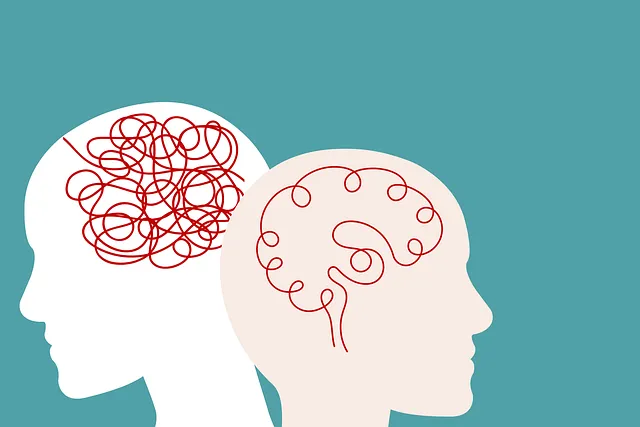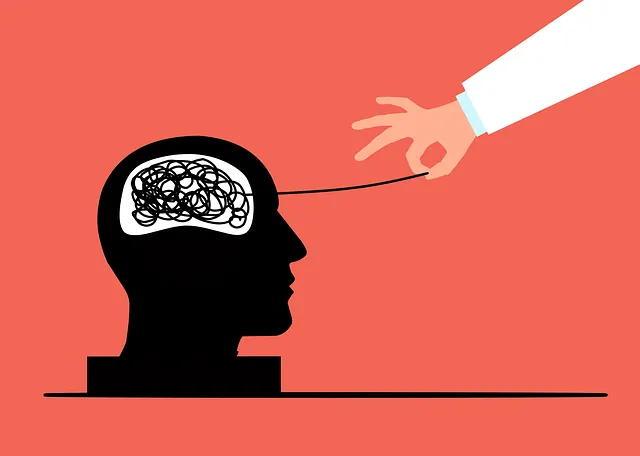Denver Kaiser mental health programs address chronic stress, a significant risk factor for mental wellness, through holistic approaches including mindfulness, cognitive-behavioral therapy, and positive thinking. Their innovative strategies, emphasizing emotional well-being, empathy, and confidence-boosting activities, empower individuals to manage stress effectively. By incorporating techniques like meditation, deep breathing, physical activity, and trauma support, these programs foster resilience and accessible mental healthcare for diverse communities, contributing to enhanced overall well-being.
Stress reduction is a vital component of maintaining optimal mental health, and innovative approaches like those offered by Denver Kaiser are transforming lives. This comprehensive guide explores the profound impact of stress on our well-being, backed by scientific insights. We delve into Denver Kaiser’s evidence-based mental health programs, showcasing their effectiveness in managing stress. Additionally, we uncover practical daily techniques to combat stress, offering sustainable strategies for long-term wellness. Discover how these methods can enhance your lifestyle and promote a resilient mind.
- Understanding Stress and Its Impact on Mental Health
- Denver Kaiser's Approach to Stress Reduction Programs
- Effective Techniques for Managing Stress Daily
- Integrating Stress Relief into Your Lifestyle Long-term
Understanding Stress and Its Impact on Mental Health

Stress is a natural response to various life challenges and demands, but when it becomes chronic, it can significantly impact mental health. The constant activation of the body’s stress response system, often triggered by prolonged or intense stressors, can lead to both physical and psychological symptoms. This can manifest as anxiety, depression, irritability, insomnia, and even physical ailments such as headaches, muscle tension, and a weakened immune system.
Recognizing and understanding these effects is crucial for implementing effective stress reduction methods. Denver Kaiser mental health programs often emphasize the importance of emotional well-being promotion techniques, empathy building strategies, and confidence boosting activities to combat the detrimental impact of chronic stress. By fostering resilience and healthy coping mechanisms, individuals can better navigate life’s challenges and maintain a sense of balance and overall well-being.
Denver Kaiser's Approach to Stress Reduction Programs

Denver Kaiser, a renowned mental health expert, offers a unique perspective on stress reduction through his innovative programs. His approach emphasizes the importance of tailoring interventions to individual needs, considering cultural sensitivity in mental healthcare practice. By recognizing that stress is a multifaceted issue influenced by personal experiences and environmental factors, Kaiser’s methods focus on holistic healing.
Through his Denver Kaiser mental health programs, he promotes techniques such as mindfulness, cognitive-behavioral therapy, and positive thinking to foster resilience. These strategies aim to empower individuals to navigate life’s challenges with greater equanimity. The emphasis on cultural sensitivity ensures that mental healthcare remains inclusive and accessible, addressing the unique needs of diverse communities, thereby enhancing mental health awareness and overall well-being.
Effective Techniques for Managing Stress Daily

In today’s fast-paced world, stress has become an ever-present companion for many. However, managing it effectively is a crucial aspect of maintaining one’s mental wellness. The Denver Kaiser Mental Health Programs offer a multitude of techniques to combat this daily challenge. Mindfulness practices, such as meditation and deep breathing exercises, have been shown to significantly reduce stress levels by calming the mind and body. These simple yet powerful tools can be integrated into any routine to create moments of tranquility amidst the hustle and bustle.
Additionally, engaging in regular physical activity is a game-changer when it comes to stress management. Exercise releases endorphins, often referred to as ‘feel-good’ hormones, which can enhance mood and promote mental clarity. The Community Outreach Program Implementation by Denver Kaiser focuses on making these activities accessible to all, fostering a supportive environment for individuals to prioritize their mental health. Moreover, trauma support services play a vital role in helping those with past traumatic experiences manage stress and build resilience, ensuring a holistic approach to wellness.
Integrating Stress Relief into Your Lifestyle Long-term

Incorporating stress relief into your daily routine is a crucial step toward long-term mental well-being. The Denver Kaiser mental health programs emphasize self-care as a foundation for managing stress effectively. Techniques like mindfulness meditation, deep breathing exercises, and regular physical activity can significantly reduce tension accumulated over time. By dedicating just 15-20 minutes each day to these practices, you can foster a sense of calm and resilience that carries over into your personal and professional life.
Beyond individual strategies, learning conflict resolution techniques and fostering self-esteem improvement can further enhance stress management. The Denver Kaiser programs also offer crisis intervention guidance, equipping individuals with tools to navigate challenging situations with composure. These integrated approaches not only provide immediate relief but also equip you with lasting coping mechanisms. Through consistent practice, you can transform stressful moments into opportunities for growth and strengthen your overall mental health.
Stress reduction is a vital component of maintaining good mental health, and the strategies outlined in this article offer a comprehensive roadmap. By understanding the impact of stress on our well-being, we can adopt effective techniques like those provided by Denver Kaiser’s mental health programs to manage daily stressors. Integrating these practices into our routines long-term can lead to significant improvements in overall mental health and quality of life.






